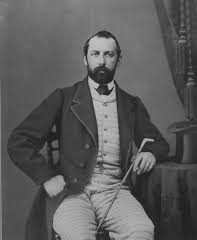Understanding the Role of the Princess of Wales

Introduction
The role of the Princess of Wales has historically held immense significance in the British royal family and British culture at large. This title, often associated with public service, charity work, and cultural influence, has seen various figures represent its values over the years. Currently, the title is held by Catherine, Princess of Wales, who has made notable strides in numerous charitable initiatives and engagements, especially focusing on mental health advocacy.
The Significance of the Title
The title of Princess of Wales is traditionally given to the wife of the heir apparent to the British throne. It is a position that carries not only prestige but also a responsibility towards the public and charitable organisations. The Princess of Wales often acts as a bridge between royal engagements and the general populace, bringing attention to important social issues and promoting community engagement.
Catherine, Princess of Wales
Catherine Middleton, now the Princess of Wales, married Prince William in 2011 and has since undertaken numerous royal engagements. Her approach to the role is marked by modernity and approachability, aiming to connect with the younger generation. Catherine has been particularly active in issues surrounding mental health, early years development, and addiction, demonstrating a commitment to addressing the complexities of modern society.
Charitable Initiatives
One of her most noteworthy contributions is the ‘Heads Together’ campaign, which she co-founded with her husband and brother-in-law, Prince Harry. The campaign seeks to eliminate stigma surrounding mental health and encourages open conversations about psychological well-being. The initiative has gained traction and impacted thousands across the UK, showcasing the potential of royal influence in addressing societal challenges.
Public Engagement
Catherine also engages with children and young families directly, participating in events aimed at promoting early development and education. Her hands-on approach reinforces her commitment to the welfare of the future generations of the UK, aligning her initiatives with both public interest and royal duty.
Conclusion
The role of the Princess of Wales remains vital in modern British society, symbolising compassion, service, and social responsibility. As Catherine continues to embrace her role with a contemporary outlook, the potential for future initiatives is promising. With growing public interest in mental health and community welfare, the Princess of Wales exemplifies how the monarchy can adapt and respond to the needs of society, making her a significant figure for both the UK and the Commonwealth. As she navigates her responsibilities, the impact of her work is likely to resonate across generations, inspiring a new era of royal engagement.









